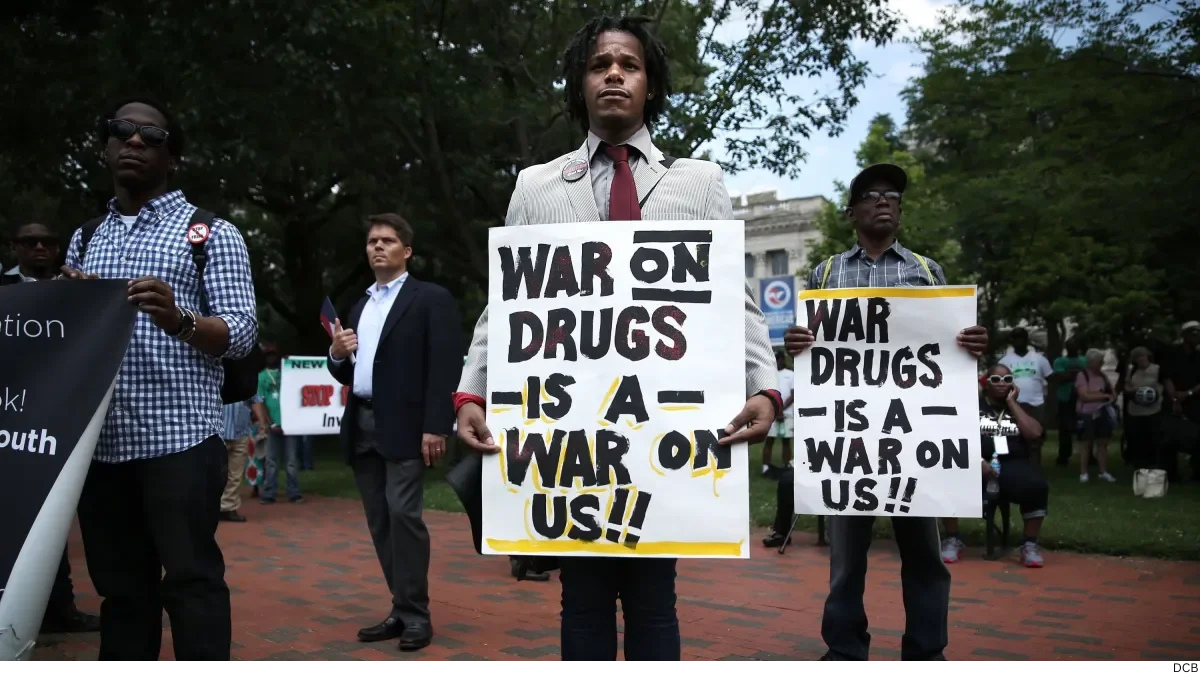In recent developments that have drawn global scrutiny, the United States, under President Donald Trump, has escalated its military and diplomatic actions in Latin America, prompting accusations that it is targeting innocent civilians in its campaign against drug cartels. The most recent controversy erupted after Colombian President Gustavo Petro publicly accused the U.S. of killing a Colombian fisherman, Alejandro Carranza, in what Petro described as a violation of Colombia’s sovereignty. This accusation triggered an unusual retaliatory move from the Trump administration, highlighting a broader pattern of extrajudicial action that raises critical ethical and legal questions.
The incident centers on U.S. military strikes targeting alleged “drug boats” in the Caribbean and along the Venezuelan coast. Since early September, at least ten such strikes have occurred, reportedly targeting cartel operations. However, these operations have resulted in at least 43 deaths, and there is growing skepticism about the precision and legality of these attacks. The U.S. government has remained largely silent about its targeting process, merely asserting that these vessels are occupied by cartel members. The lack of transparency has fueled accusations of recklessness and disregard for civilian lives.
President Petro’s public criticism ignited a sharp response from Trump. Instead of addressing the allegations with evidence or investigation, the administration imposed sanctions on Petro, his family, and Colombia’s foreign minister. Additionally, Trump announced a suspension of U.S. aid to Colombia, signaling a stark shift in diplomatic relations. These measures place Petro in the rare company of foreign leaders directly targeted by U.S. sanctions—a list that includes Russia’s Vladimir Putin, North Korea’s Kim Jong Un, and Venezuela’s Nicolás Maduro.
The broader context of these operations is critical. The Trump administration has framed its anti-drug campaign as part of a wider effort against Venezuela’s influence and drug trafficking networks in the region. Military deployments, including an aircraft carrier strike group dispatched to the Caribbean, underscore the administration’s willingness to use force far beyond U.S. borders. Officials argue that these actions fall under the authority of a “noninternational armed conflict” with drug cartels—a legal fiction used to justify lethal operations without formal declaration of war. Critics, however, see this as an alarming overreach of executive power.
The implications of these actions are profound. Strikes on foreign soil that result in civilian casualties may violate international law, particularly principles prohibiting extrajudicial killings and the targeting of non-combatants. The apparent absence of accountability, combined with the broad discretion exercised by the executive branch, sets a concerning precedent. Historically, presidents have faced strict legal and political constraints when authorizing military operations abroad. The Trump administration’s approach—using unilateral force, imposing sanctions in response to criticism, and suspending aid as leverage—marks a notable departure from conventional diplomacy and military engagement.
Moreover, these events highlight the troubling interplay between the war on drugs and the war on terror. By labeling drug cartels as participants in an armed conflict, the administration effectively extends counterterrorism-style powers to domestic drug enforcement operations. The consequences are deadly: civilians, like Alejandro Carranza, are caught in the crossfire, raising questions about the ethical and legal frameworks guiding U.S. foreign operations. The lack of transparency exacerbates these concerns, making it nearly impossible to independently verify whether targets were legitimate cartel members or innocent bystanders.
The Trump administration’s punitive response to criticism also raises serious questions about the use of sanctions as a foreign policy tool. Traditionally, sanctions are aimed at deterring malign actors or pressuring regimes to change harmful behavior. In this case, however, sanctions appear to function as a tool of personal grievance, punishing a head of state for publicly criticizing U.S. military actions. This sets a dangerous precedent, where dissent or exposure of wrongdoing could be met with economic and diplomatic retaliation rather than dialogue or investigation.
Observers warn that such actions could destabilize the region. Colombia, a longtime U.S. ally in the war on drugs, now faces suspended aid and increased tensions with Washington. Venezuela, already a flashpoint for U.S. military attention, may see further escalation as the administration uses military power to assert its influence. Meanwhile, civilians in the region continue to bear the brunt of these strategies, raising urgent humanitarian concerns.
Ultimately, these developments reflect a broader trend of executive overreach in foreign policy, where military force, economic sanctions, and diplomatic pressure are wielded with minimal accountability. The question posed by Petro—whether the U.S. is killing innocent people—resonates far beyond Colombia. It challenges the international community to scrutinize the legality and morality of extrajudicial actions carried out under the banner of national security or drug enforcement.
As the world watches, the need for transparency, accountability, and adherence to international law becomes ever more pressing. Without these safeguards, the U.S.’s aggressive anti-drug operations risk eroding global norms, undermining alliances, and perpetuating a cycle of violence that claims the lives of innocent people. The stakes are high, and the implications for U.S. foreign policy, regional stability, and human rights are profound.
%20(4).png)








